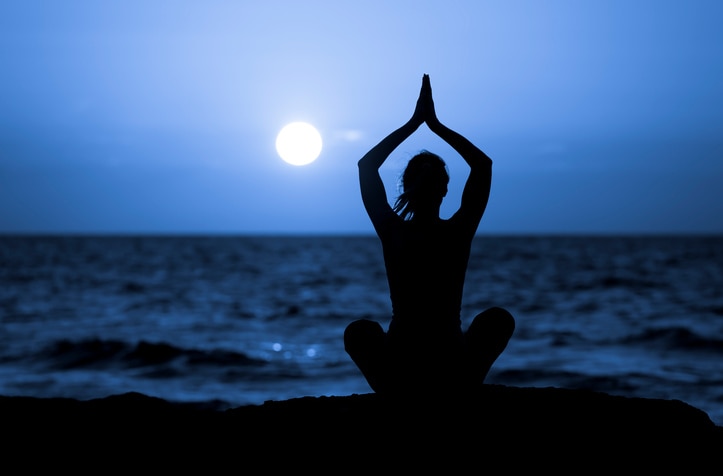Is it “lunacy” to think that the moon, and its lunar cycles, has an effect on our health? While some scientists dismiss outright the idea that the moon could exert anything beyond an emotional effect on humans, there is some research that supports a connection between lunar phases and certain health conditions—but for reasons that may surprise you. Read on for three conditions that the moon may influence.
Kidneys
A 2011 study of almost 1,500 people, published in the Journal of Urology, found that kidney stone pain increased significantly during a full moon. One theory is that the lunar cycle affects fluid balance—and the organs, along with the rest of our body, is made up of about 60 percent water. Just as lunar activity creates powerful and predictable ocean tides, the moon may cause a noticeable ebb and flow in our organs. For kidneys in particular, the moon may change the concentration of urine in ways that are yet to be understood.
Sleep
It may be an old wives’ tale that a full moon makes you crazy, but it may be true that a full moon causes you to lose sleep. A 2013 study published in Current Biology found that people slept less, had poorer-quality sleep, and took longer to fall asleep when the moon was full. (The study took place in a controlled area that had neither clocks nor outside light.) Participants also had decreased melatonin levels, leading researches to speculate that the moon's brightness may interfere with the body's sleep signals.
Menstrual cycle
A woman’s average menstrual cycle is 28 days, which is quite similar to the four-week lunar cycle. Coincidence or synergy? There’s a reason many women call their periods their moon cycle or say they are on their “moon” when they are menstruating. While the moon does correlate with the menstrual cycle, there’s not a consistent pattern. A Scandinavian study published in the journal Acta Obstetricia et Gynecologica Scandinavica tracked more than 800 women for up to 25 years and found that almost 30 percent of women had their periods around the full moon. However, Chinese researchers found that almost 30 percent of all the women monitored ovulated at the full moon and menstruated during the new moon.
Want to start attuning to the moon's power and honoring your own lunar nature? Here are a few tips to get you started.
Reflect with the waning moon:
The last days of the waning moon leading up to the new moon is the time to look inward, allow deep rest, and take stock of what’s working and what’s not in your life. It’s a good time to set intentions and listen to your intuition.
Take action during the waxing moon:
The time between the new moon and full moon represents fruition. This is the phase to implement all of the intentions you set during the new moon. As the moon gets bigger, try to find even small ways to pursue what gives your life meaning.




